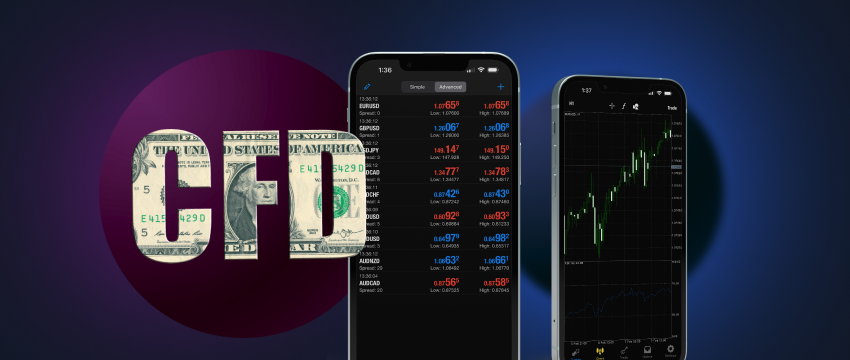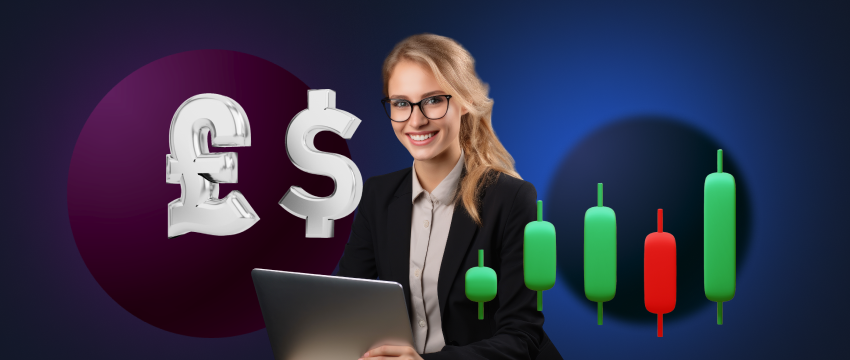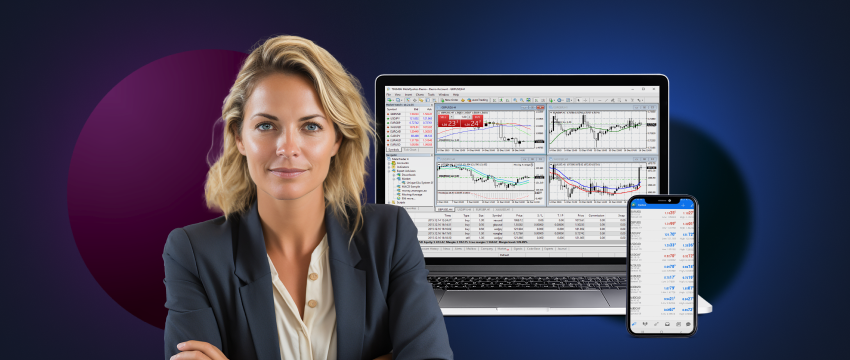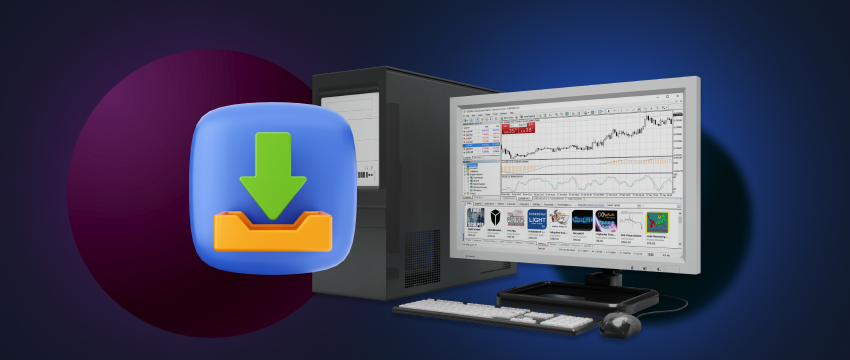CFD, short for Contract for Difference, remains a popular financial derivative used by global traders. To access their preferred markets. A CFD trader essentially enters into a contract with a broker to exchange the difference in the underlying asset’s price. From the time the contract opens until it closes. The asset may vary, ranging from stocks and commodities to forex and indices.

Key Characteristics of Contracts for Difference (CFD)
CFDs are unique
CFDs are unique in that they allow traders to speculate on price movements. Without having to take ownership of the underlying asset. For example, instead of buying or selling a physical asset. The trader simply speculates on whether the asset’s price will increase or decrease. The trader thus attempts to make a profit based on the price change.
Trading CFDs enables traders to speculate on both rising and falling prices. This gives the trader the ability to go long (buy) if they predict the asset’s price will increase, or go short (sell) if they predict it will decrease. If the sentiment is that the asset’s price will fall. The profit (or potential loss) depends on the difference between the opening and closing prices.
CFDs for multiple markets
Traders can also trade CFDs in multiple markets, making them a great portfolio diversification tool. However, since movements of the underlying market typically drive CFD prices, monitoring those markets is key to mitigating unexpected price fluctuations and poor trading outcomes.
Impact of Economic Events
Some of the most common events impacting the markets are economic releases, central bank announcements, interest/inflation rates, unemployment/employment rates, trade agreements, geopolitical uncertainties, and even environmental disasters.
Traders will often make use of an Economische kalender to properly monitor for these types of events and other indicators so as to plan their trades more strategically, and to increase their potential for higher gains.
Leverage and CFD trading
One of the most well-known features of CFDs is their high leverage. This means a trader can open a larger CFD position for a small amount. While committing only a fraction of the value to the position, leverage tends to amplify both profit AND loss, especially if traders don’t manage it properly.
This is especially likely if markets move in adverse directions, causing aggressive and often unanticipated price movements. This is also why implementing effective risk management techniques into your trading strategy is essential.
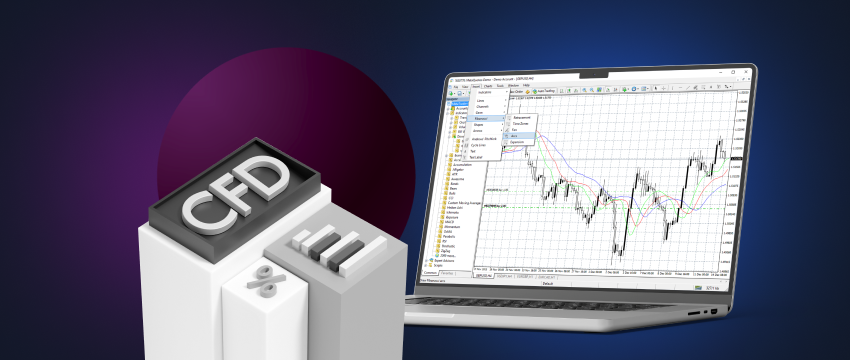
Some of the most important tools for managing risk better include:
- Stop-loss orders: When an existing position reaches a certain price, traders trigger its closure to limit losses.
- Take-profit orders: Closes a trading position when a price reaches a certain profit level.
- Trailing stop: An adjustable stop loss order adjusts the stop price when the market moves in a positive direction.
The importance of technical analysis in CFD trading
Technical analysis is the study of price movements. Traders use it to evaluate and forecast future price actions of different financial instruments.
This is just as important in the context of CFD trading, where the trader is speculating on the price movements of the underlying asset. Technical analysis usually involves the use of different technical indicators, be they Bollinger Bands, Moving Average (MA), Relative Strength Index (RSI), Fibonacci (Retracements), Support and Resistance, and many others.
This is not to say that a CFD trader won’t use fundamental analysis, on the contrary, they will, albeit not as often. For a trader looking to ascertain the intrinsic value of an underlying asset, they will look to information like earnings reports and financial statements. They will also track central bank policy changes, economic announcements, and other relevant data.
Both technical and fundamental analysis play a role in executing trades, albeit that technical analysis is probably more widely used for making faster decisions.
Having the right trading psychology
There are many strategies used for trading CFDs. This includes day trading, swing trading, scalping, news trading, any many others. Many of these strategies see CFD positions being opened and closed in minutes or even seconds. This requires a trader who’s quick-thinking and can handle the pace without letting feelings of stress or anxiety overcome them.
Possessing these characteristics can be a challenge for many people. This makes having a good grip of your trading psychology vital, to ensure your emotions don’t drive you to making adverse CFD trading decisions. So how does one become more think-skinned, more resilient to be able to cope with the challenges that are inherent to trading CFDs?
Level of risk
- Acknowledge the level of risk you’re willing to take on and implement risk management techniques that are in alignment. This will likely reduce the fear that comes with possibly losing all your capital.
The performance of trading positions
- Regardless of how well, or not well, your positions are performing, avoid the temptation of overtrading. Both arrogance and fear can lead to poor decision-making making so base your moves on data rather than feelings. If you feel either emotion becoming overwhelming, consider pausing, taking a break, and then resuming your activity.
Journal your trades
- Record not only the type of position you opened or closed but also why. Include what you were feeling in the moment that you entered or exited the trade. In this way, you can build a history of all the behaviours you exhibited in the course of executing trades, and adjust those behaviours where necessary.
Opening a demo trading account
- Consider opening a demo trading account to practice CFD trading first, before moving to a live trading environment. A demo account offers you the opportunity to trade using virtual money.
- Take advantage of this by executing multiple different trades to assess outcomes. Seeing as you won’t be putting your own money at risk, you won’t be hindered by any negative emotions. Once you’ve gained the confidence and skills to start trading with your own funds, start trading in real time.
Keep your education updated
- Ensure you keep your education updated. Yes, ongoing learning is incredibly important for refining your skills and keeping up to date with new technologies and trends. Arming yourself with new information on a consistent basis will likely help you make trading decisions rooted in objective data rather than feelings or impulse.
- In fact, T4Trade’s Academy is a great online space for access to a wide variety of educational resources. Whether you’re looking for e-books to read, videos to watch or podcasts to listen to, there’s something for everyone. The broker also offers insightful blogs covering CFD trading fundamentals to strengthen your knowledge base.
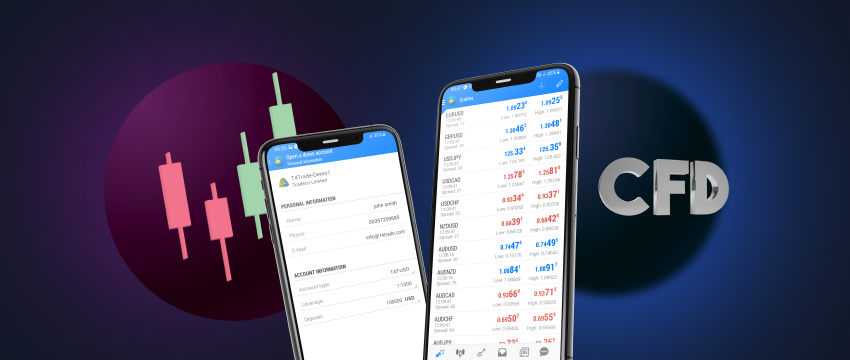
Trading with a CFD broker like T4Trade
One of the most important elements of CFD trading is choosing a CFD broker that best caters to your specific needs. T4Trade is an award-winning global broker with clients worldwide. It is regulated and reputable, and well-versed in all things CFD trading. The broker is renowned for its flexible trading conditions, a range of trading accounts to choose from, and a top-tier customer support team that is available 24/5 to assist you via Live Chat or email.
T4Trade also offers swift execution of trades, and quick and easy deposit or withdrawal of funds. Additionally, with its diverse range of assets, you’ll likely find your preferred market to trade. And finally, with T4Trade, you’ll gain access to the MetaTrader 4 (MT4) trading platform, arguably the most popular trading platform in the world that is suited to all types of traders, regardless of experience.
Disclaimer: This material is for general informational and educational purposes only and should not be considered investment advice or an investment recommendation. T4Trade is not responsible for any data provided by third parties referenced or hyperlinked in this communication.
